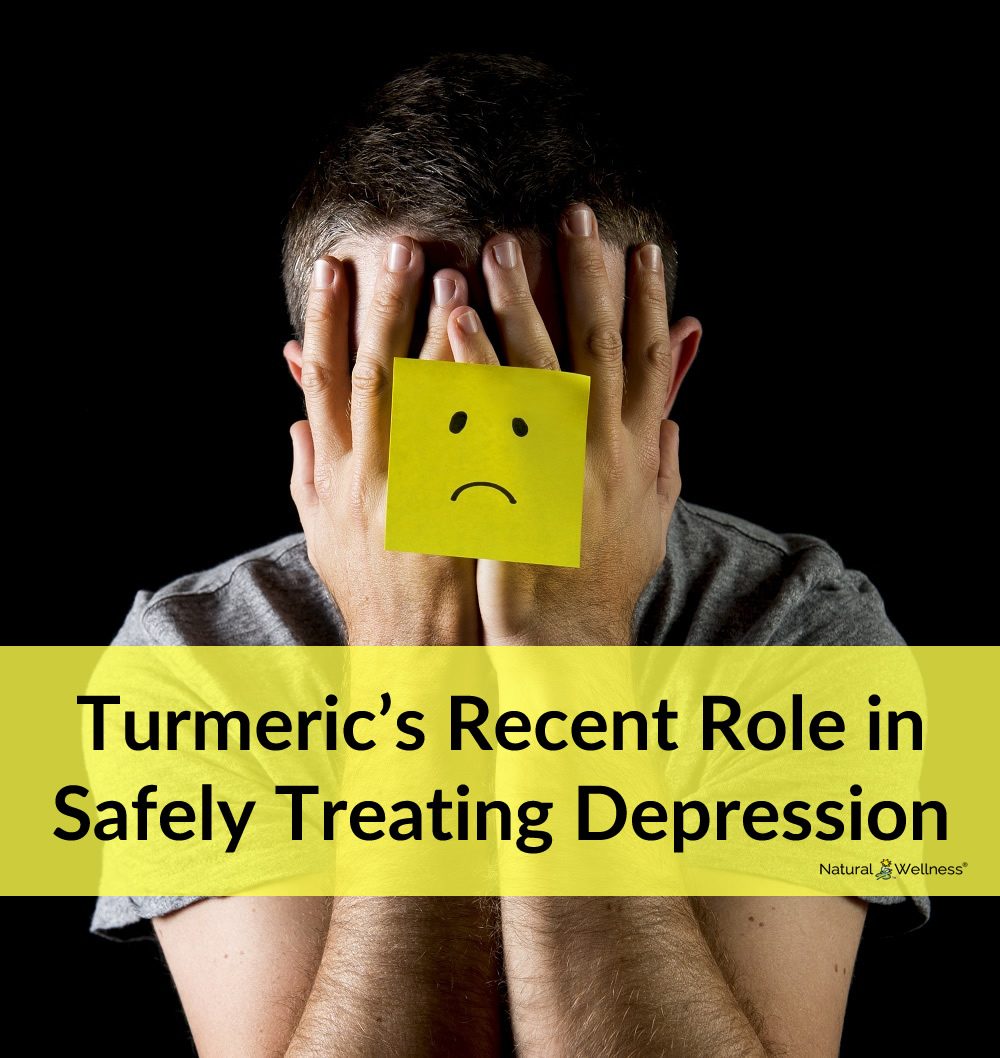

Turmeric, or curcuma longa, has been around for over 4,000 years and has a long history of use in medicine. Primarily an anti-inflammatory agent, turmeric offers many health benefits, not the least of which is to act as a cholagogue, meaning it stimulates bile production and aids in the breakdown of fats.
Curcumin for Depression and Anxiety
In more recent years, studies have been providing evidence that curcumin, the active ingredient in turmeric, may be used as a safe treatment for patients suffering from depression and other psychiatric disorders including Alzheimer’s disease and epilepsy.
Fifteen to twenty percent of the world’s population suffers from depression, and many do not respond well to traditional treatments. It is believed that curcumin’s anti-inflammatory and antioxidant properties have positive effects on brain cells, reducing oxidative stress to the cells. Curcumin has also been shown to positively moderate several neurotransmitters in the brain.
Because of curcumin’s low molecular weight and structure, it is able to penetrate the blood-brain barrier effectively. For this reason, curcumin is a powerful neuroprotective agent that can act on the brain and neurons directly. Curcumin has been shown to have powerful anti-seizure properties as well as antidepressant and antianxiety properties.
Curcumin acts as an antidepressant by modulating the release of serotonin and dopamine, which it does by inhibiting the activity of both monoamine oxidase (MAO-A and MAO-B) enzymes. Both monoamine oxidase enzymes are responsible for the degradation of serotonin and dopamine. By suppressing the enzymes, serotonin and dopamine levels return to normal concentrations in the synapses.
Curcumin Trials
Animal trials have shown curcumin to be a powerful agent in reducing stress and depressive symptoms, while human studies have shown limited, but still significant improvements in depression, anxiety, seizure disorders and even Alzheimer’s disease symptoms. More research is being done combining curcumin with current anti-depression medications to determine if the combination of these medications with the powerful anti-inflammatory and anti-oxidative effects of curcumin changes current drug outcomes.
Adding Turmeric to Your Diet Is Easy
Inflammation causes many health concerns in the body, so adding foods that fight it is never a bad idea. Turmeric (curcumin) is not only a wonderful anti-inflammatory and antioxidant, it also tastes great! Turmeric adds a warm, spicy flavor to foods and can be added to eggs, frittatas, soups and stews and even smoothies. No matter what our current diet, turmeric supplements allow us to benefit from its anti-inflammatory properties.
Editor’s Note: Turmeric 95 offers a highly absorbable Turmeric with BioPerine combination. It offers support to your liver, gallbladder, digestive system, and more.





Yes, I always add Turmeric or curcumin to my soap and food it is tasty and useful.
Yes, I always add curcumin or Turmericto my soup or any food, it is tasty and useful. I even mix it with honey making it as a mask for clear skin.